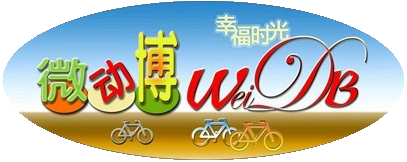看看加拿大安省的疯狂性教育
Jolie-3089 04/10 8017
Cope with the controversies within Sex Curriculum
如何应对新版性教育课程中的争议问题
It is a shame that Ontario Ministry of Education starts to deploy the controversial sex education curriculum despite parents’ objection. Parents and students have to brace themselves for the upcoming impact on our traditional value.
去年2月份公布的新版健康和生理教育大纲的性教育部分,有很多的争议性内容,但是很遗憾安省教育厅不顾家长们的强烈反对,将于近日开始实施这一部分的教学活动。
Some school may offer opt out solution, which has pros and cons.
根据各个学校的不同情况,有的学校将会提供免修此科的选择,这种做法对学生有利有弊。
Parents can also choose to discuss with teacher, about those itemized controversies, with a goodwill of working with teachers, to understand teacher’s approach to these subjects. We have to understand that as a professional, it is their duty to deliver those controversies to students. As parents, we could only discuss them with kids in positive and subjective attitude, help them to make their choice.
诸位家长还可以老师以积极正面的态度沟通,了解老师对于具体争议性内容的教学方法。作为专业的老师,他们有责任将这些即使是有争议的内容介绍给学生。所以作为家长,我们只能以正面和建设性的态度,与孩子们讨论这些争议内容,鼓励孩子们做出正确的选择。
Parents could also find many resources about how to have a sex talk with kids, which are based on higher purpose of life rather than flesh desire.
诸位家长还可以查询各种基于崇高信仰的性教育资源和组织,帮助自己如何与子女讨论性的话题。
Below are the controversies listed by grade, parents could communicate with teachers about these issues in details. Email might be a better way to keep a record.
下面列出各个年级的争议性内容,供诸位家长与老师们讨论较具体的问题。用电邮方式会更易于保留记录。
1年級P93要求“指出陰部各器官”,没有教导孩子別人不可以碰,可能会暴露他們于性罪犯的侵害下。
C1.3 identify body parts, including genitalia (e.g., penis, testicles, vagina, vulva), using correct terminology
3年級P124要求學生接受和尊重“雙母或雙父家庭”,然而这对于许多家庭的信仰文化習俗是冲突的。
C3.3 describe how visible differences (e.g., skin, hair, and eye colour, facial features, body size and shape, physical aids or different physical abilities, clothing, possessions) and invisible differences (e.g., learning abilities, skills and talents, personal or cultural values and beliefs, gender identity, sexual orientation, family background, personal preferences, allergies and sensitivities) make each person unique, and identify ways of showing respect for differences in others [PS, IS]
Teacher prompt: “Sometimes we are different in ways you can see. Sometimes we are different in ways you cannot see – such as how we learn, what we think, and what we are able to do. Give me some examples of things that make each person unique.”
Student:“We all come from different families. Some students live with two parents. Some live with one parent. Some have two mothers or two fathers. Some live with grandparents or with caregivers. We may come from different cultures. We also have different talents and abilities and different things that we find difficult to do.”
Teacher:“How can you be a role model and show respect for differences in other people?”
Student: “I can include others in what I am doing, invite them to join a group, be willing to be a partner with anyone for an activity, and be willing to learn about others.”
4年級9歲,P141,灌輸“超越朋友的關係”“出去約會”的做法,似乎太早了些
Teacher prompt:“What can change socially as you start to develop physically?”
Student: “Relationships with friends can change, because sometimes people start being interested in different things at different times. Some people start ‘liking’ others. They want to be more than ‘just friends’ and become interested in going out. Sometimes people treat you as if you are older than you actually are because of how you look. Sometimes classmates, friends, or family make comments or tease you about the changes.”
5年級10歲,P157,形象的描述性行為“陰莖進入陰道”,也似乎太早了些。如果孩子尝试,有未成年(12岁以下)性行为违法的风险。
Teacher :“The testicles are glands within the scrotum that produce sperm and hormones,
beginning at puberty. After sperm develops in the testicles, it can travel through the epididymis until it reaches the vas deferens where it is stored until ejaculation occurs. During ejaculation, the prostate gland releases a liquid that mixes with the sperm from the vas deferens to make semen, which then leaves the body through the urethra. Fertilization can occur when the penis is in the vagina, sperm is ejaculated, and the sperm and egg connect. Babies can also be conceived by having the sperm and egg connect using assisted reproductive technologies. What is the purpose of sperm production?”
6年級11歲,P175,灌輸“手淫是正常,愉悅的”的争议性概念,自制力较弱,会引发更多问题。
Teacher prompt:“Things like wet dreams or vaginal lubrication are normal and happen as a result of physical changes with puberty. Exploring one’s body by touching or masturbating is something that many people do and find pleasurable. It is common and is not harmful and is one way of learning about your body.”
7年級12歲,P196,變相引入“肛交,口交”概念,暗示同性性行为。法律规定18岁以下的肛交是违法的。
Teacher prompt:“Engaging in sexual activities like oral sex, vaginal intercourse, and anal intercourse means that you can be infected with an STI. If you do not have sex, you do not need to worry about getting an STI.
7年級P197介紹艾滋病“經過治療可以有正常人的壽命”,淡化艾滋病的危险,淡化同性性行为患艾滋病的高风险,也没有提及病患依然有高傳染性,和高死亡率。
Teacher prompt:“HIV (Human Immunodeficiency Virus) is a serious viral infection that can be controlled with treatments. HIV attacks the cells in the body that help to fight infections until they are no longer able to do their job. With treatment, the damage that HIV does to the body’s immune system can be slowed or prevented. But HIV infection cannot be cured. The only way to know if you have HIV is to get an HIV test. Today, when people get tested for HIV early in the infection and access HIV treatments, they have the opportunity to live a near-to-normal lifespan.
7年級12歲,P196 “如果你考慮發生性行為,你會如何保護自己?” 完全忽略生育,婚姻,家庭,責任與性行為的關係。止步于性行為中對身體的保護:
Teacher prompt:“Engaging in sexual activities like oral sex, vaginal intercourse, and anal intercourse means that you can be infected with an STI. If you do not have sex, you do not need to worry about getting an STI. (By the way, statistics show that young people who delay first intercourse are more likely to use protection when they choose to be sexually active.) If a person is thinking of having sex, what can they do to protect themselves?”
八年級13歲,P216,灌輸有爭議的性別流動性“變性人,雙性戀。。。”等概念
Teacher prompt:“Gender identity refers to a person’s internal sense or feeling of being male or female, which may or may not be the same as the person’s biological sex. It is different from and does not determine a person’s sexual orientation. Sexual orientation refers to a person’s sense of affection and sexual attraction for people of the same sex, the opposite sex, or both sexes. Gender expression refers to how you demonstrate your gender (based on traditional gender roles) through the ways you act, dress, and behave. Gender identity, gender expression, and sexual orientation are connected to the way you see yourself and to your interactions with others.
八年級:P216 “如果你選擇發生性行為前咨詢醫生,你會更傾向于使用避孕套”,缺乏道德指引,缺乏对父母角色的强调。
Students:“Having more information – and information that you can trust – helps you make better decisions for yourself. Taking time to get more information also gives you more time to think. Teens who consult a health professional before being sexually active are more likely to use protection, such as condoms, if they choose to be sexually active.” “Teens with physical or cognitive disabilities still need information about sexual health, just like everybody else. They may be dealing with different issues, like adapting sexual health information to their particular needs, or with variations on the same issues, like privacy and self-image.”
The damage to our young generation from these controversies will be epidemic. They baffle their visions, drive them off the way with flesh desires. They will further destroy our family values, and social structures. As parents, we shall pick up the responsibility of educate our kids, lay their foundation on top of faith, faith of ultimate causes.
我们将会看到这一争议性大纲对年轻一代的严重伤害,将会看到其对已经是肢离破碎的家庭观念,性观念和社会结构造成的严重冲击和破坏。作为家长,我们需要努力的负担起教育子女的责任,重建基于崇高信仰之上的价值观念。



